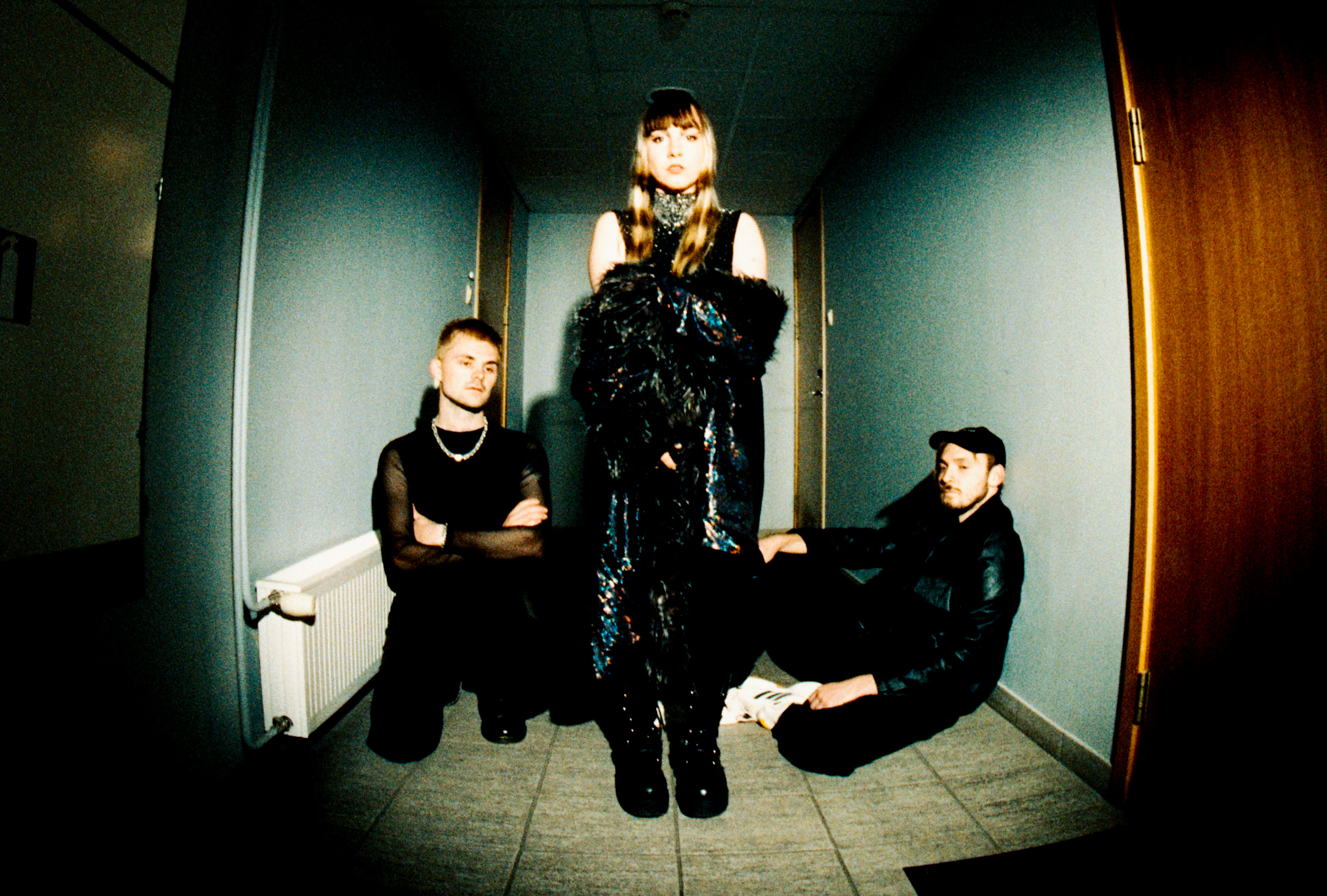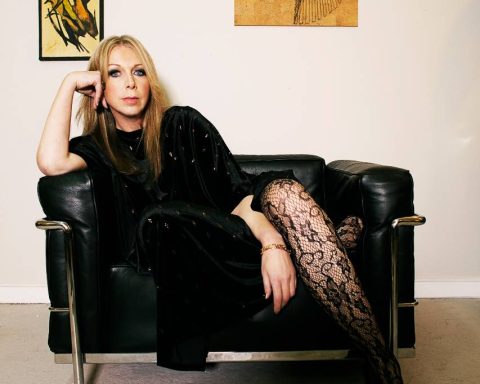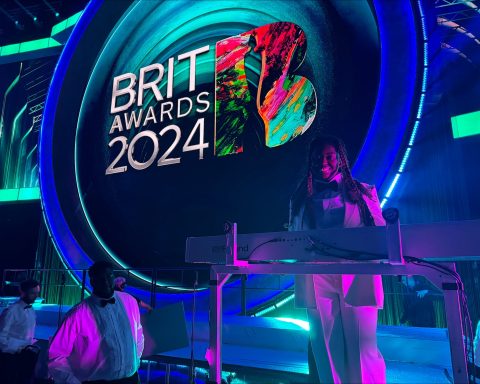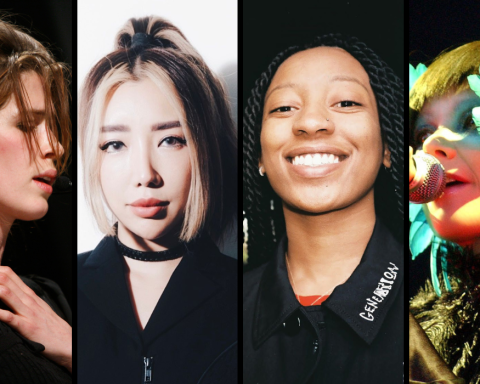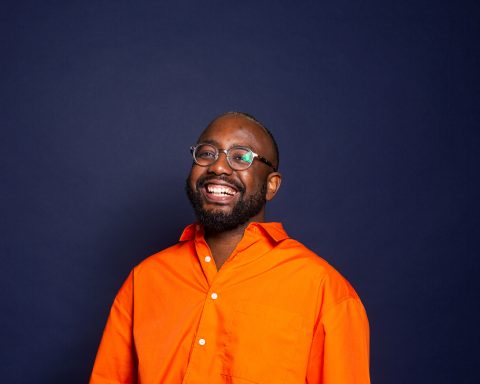Fully embodying the concept of DIY recording, Max Doohan, Sam Richards, and Iiris Vesik began making music while living together in shared accommodation in South London. Their gear has expanded since the days of using one guitar, a drum set, and a Roland Space Echo. Still, the trio has retained the rich, dreamy atmospheres that define the sleepless city of London and drenched last year’s Perfect Kindness EP and recent single, “drifting.” Surprisingly, Night Tapes had little knowledge of the dream pop purveyors who forged the genre’s path. Yet, joining the dots has only helped them build upon their sound and an ever-expanding fan base.
Housemates
Tell us about your backgrounds and how Night Tapes came into existence?
Sam Richards: Before Night Tapes, we were all producers making glitch and effects-driven electronic music. At a certain point, Max said he wanted to write something that had more of a song structure or soul.
From that point, we started to write songs like that together, and because we lived in the same house, we’d just come into each other’s rooms and start playing. It all happened completely organically. When we wrote the first track, “Dream,” it felt like a band, and we kept the very first thing Iiris sang for the track, “Forever.”
Iiris, were you housemates with Max and Sam, too?
Iiris Vesik: Yep, we were all living together. I’m from Estonia and came to the UK to smash it about ten years ago. I went to music school but didn’t realize how much music theory had seeped into me until I started teaching songwriting and singing lessons.
Has attention come quicker than you expected?
IV: For me, Night Tapes was just a nice thing to do for fun. It’s worked out well because the axioms of the band are pure. It started as something we enjoy doing rather than being a ‘let’s take over the world’ type situation, which could have been very stressful. The magic can be found between our past and present selves, where everything we’ve ever been is the soil for what we’re becoming.
“The magic can be found between our past and present selves, where everything we’ve ever been is the soil for what we’re becoming.”
Iiris Vesik
Finding Dream Pop
Do your influences derive from the ’80s dream pop of Cocteau Twins and Slowdive or more recent vendors of the genre?
Max Doohan: We were listening to chillwave and shoegaze bands like Deerhunter because we liked the intersection of electronic music and songs. For me, Washed Out was also quite an important artist.
SR: Funnily enough, we only realized that bands like Cocteau Twins and Deerhunter existed after we’d started recording. It was then that we thought, “Oh, other people have been doing this.” And it’s pretty clear they were going for a similar sound.
IV: We were coming home after work and recording stuff onto tape and the vibe we had in the house. For some reason, that was dream pop.
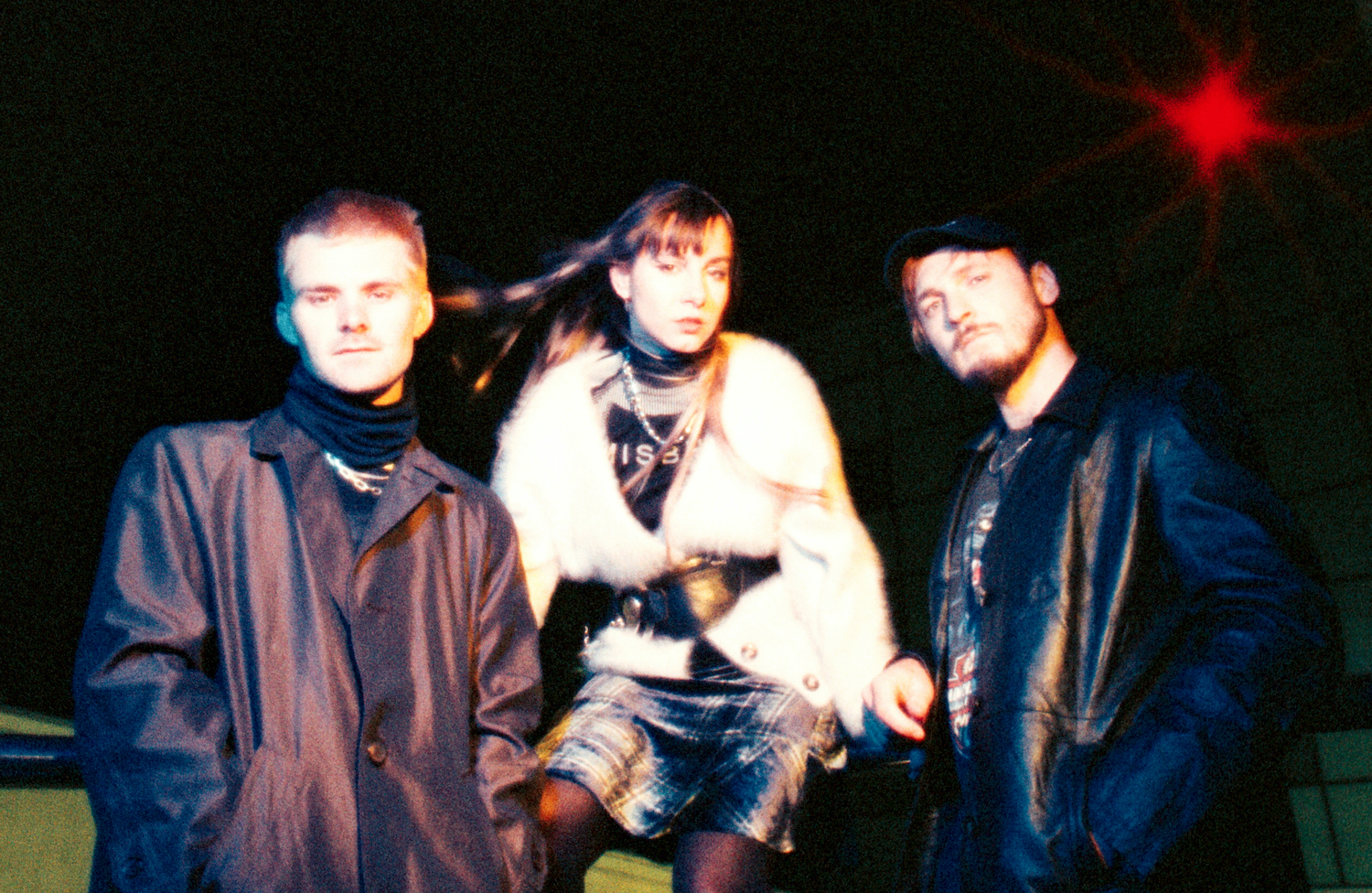
Non-Linear Approach
Tell us more about your writing process?
MD: We’ve always worked in a non-linear way. For example, we’d record into a Dictaphone and leave it running while jamming ideas out. Then months later we’d revisit all these random snippets of time and because they were on tape they sounded very out of control and chaotic, but a nice surprise.
Are you still knocking on each other’s bedroom doors with new ideas?
IV: We’re not living together anymore, so we have to organize sessions now. Everything we’ve ever done started from the bedrooms of South London, then we upgraded to a living room, and now we’re in a studio, and it all feels very new. We make all our own demos and bring them to the sessions, and I’m hoping we’ll be able to jam a bit more because we can record real drums now.
“Recording during the day isn’t conducive to a band called Night Tapes.”
Sam Richards
Why did you feel the need to change things up?
SR: So that we wouldn’t annoy Max’s neighbors, but we also ran out of space, needed a drum set, and wanted to be able to make music at any time. Recording during the day isn’t conducive to a band called Night Tapes, and working into the late hours makes quite a big difference to how we sound.
IV: We used to have drum sessions in one of Max’s rooms, but then we’d also wake up in the middle of the night and stumble into a crash cymbal.
Song Meanings
Iiris, are you equally involved in the music creation, or is your role to provide lyrics and vocals?
IV: We’re all playing instruments and making demos ourselves. For example, “drifting,” our latest single, is Sam’s baby, and when he brought it to the session, it was almost fully formed. The next thing will be a demo that I brought to the table. So, we’re all switching instruments and trying to grow separately.
SR: Having three songwriters in the band is our strength because there’s no pressure on just one person. If there’s a lack of inspiration, someone else will always come up with an idea to try to impress—at least, that’s all I’m ever trying to do!
"We’ve always been interested in blending synths and guitar as a launching pad for the rest of the atmospheric sounds we bring in."
Max Doohan
Do the lyrics and vocals represent themes in keeping with the atmosphere of the music? Or are they more of a reflection of your philosophies on life?
IV: Max wrote the top line to “Dream,” and then I swooped in and brought the boys to the dark side. On “drifting,” which is part of our new EP, assisted memories, you can hear Sam sing, too. But I do hog a lot of space. Part of me doesn’t want to share the track’s lyrical meaning, but I was inspired by romantic extremes and how sometimes the idea must die instead of the person.
There’s a lovely book by Sarah Blakewell called At the Existentialist Café where philosopher Maurice Merleau-Ponty explores whether these extremes serve us. For example, the idea that one person is for life or the more unapproachable you are, the more magical the attraction.
“We use Roland JUNO synths for warm and functional sounds that live in the mix but don’t immediately jump out at you.”
Sam Richards
Conjuring Atmospheres
Does your choice of instrumentation lean more towards guitars and pedals than synths and software?
MD: We’ve always been interested in blending synths and guitar as a launching pad for the rest of the atmospheric sounds we bring in, so there have always been electronic elements combined with the singer/songwriter side.
SR: We tend to process through guitar pedals and amps, too. So, a lot of what you hear might sound like a guitar but is equally likely to be a drum machine or a flute. We’ll put a flute or Iiris’s voice through some form of cassette tape saturation and into a chain of pedals, which quite often includes a Roland Space Echo. We also use plugins and a lot of effects racks for creative delays, modulations, and sound morphing.
What other Roland tools are in your arsenal?
IV: Because we could no longer record drums in Max’s room, we used the Roland SPD-SX percussion pad sampler to layer drums on tracks such as “Forever” and “Dream.” Night Tapes’ production is quite a layered sound, so playing acoustic drums doesn’t usually sound right, and we like to use the SPD to trigger electronic drums when we play live, too.
SR: We also use Roland JUNO synths for the warm and functional sounds that live in the mix but don’t immediately jump out at you. Alpha JUNO pads feature on tracks like “Selene” and many others alongside the Roland HS-60 synth, which essentially sounds the same as a JUNO-106.
"Lyrically, 'loner' is another little memory of my past self. When I first came to London, it was probably the loneliest time of my life."
Iiris Vesik
The Lonely Lyricist
What can you tell us about “loner,” the next single in the Night Tapes pipeline?
IV: Lyrically, “loner” is another little memory of my past self. When I first came to London, it was probably the loneliest time of my life. Even though I had friends and a partner, I chose to get lost in my projects, shut myself away, and not interact with people. I love being alone and working on stuff, but then I always think, “Argh, I’m so lonely.” Things could have happened so much faster had I been able to conquer my social anxiety by going outside and talking to people. If I could go back, I would tell myself to do that.
